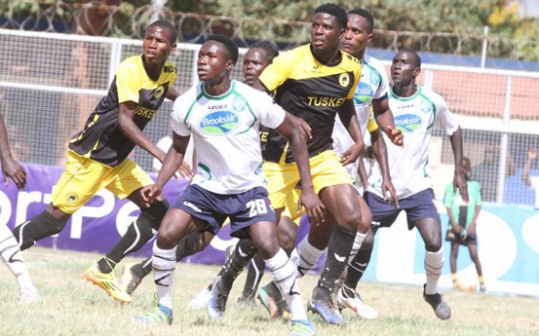×
The Standard e-Paper
Smart Minds Choose Us

The news that struggling Thika United have made changes to their technical bench is not surprising at all. Out of the season’s opening 10 matches, Thika United have amassed a paltry seven out of a possible 30 points.
It therefore fits logic that the coach, James Nandwa, had to make way for another person to help stem the rot. It makes sense, but only until you discover that his replacement is an apprentice, Nicholas Muyoti.